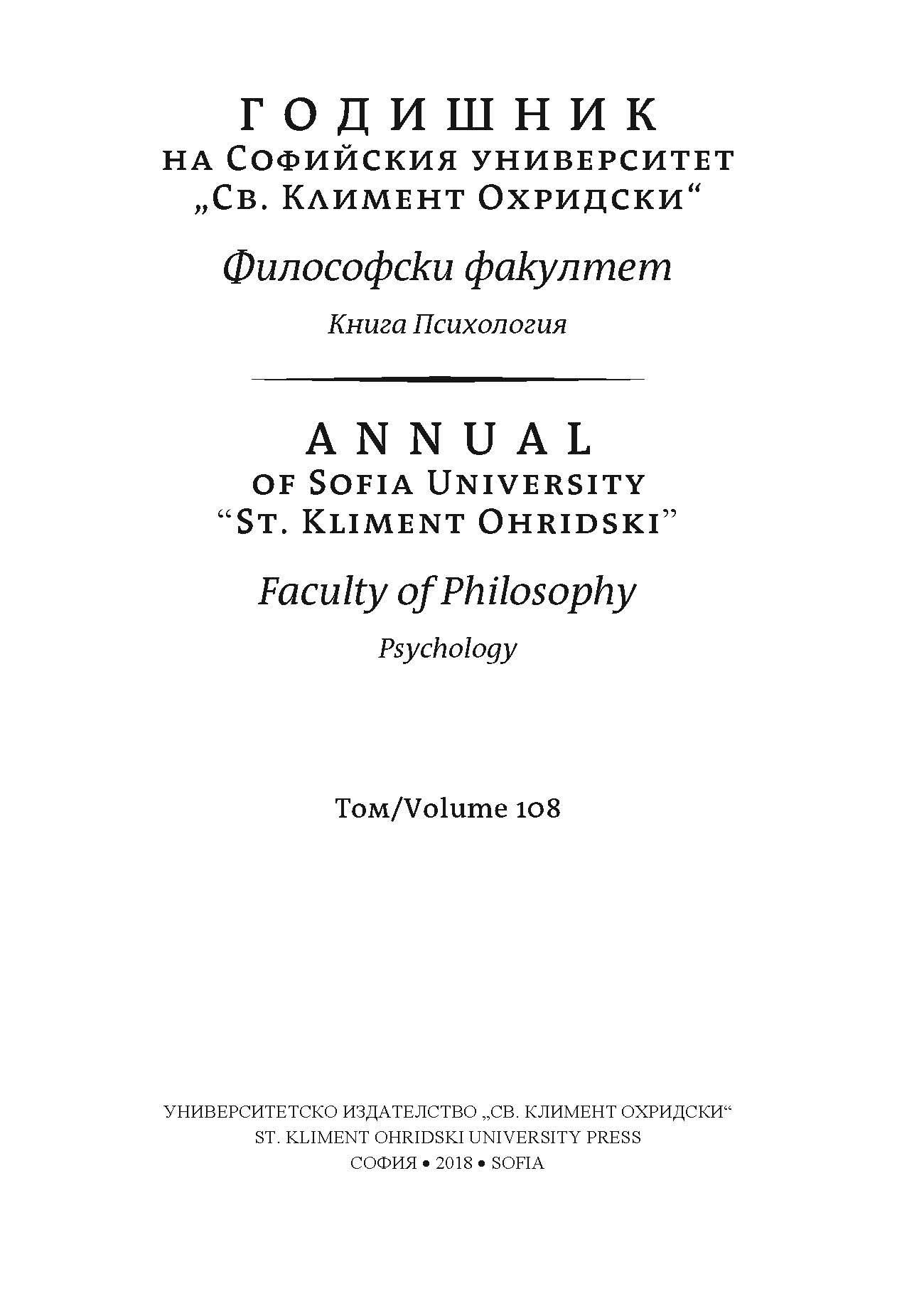Факторна структура на Въпросник за проблемни личностни черти в детска възраст
Bulgarian adaptation of Child problematic traits inventory
Author(s): Plamen Kalchev, Svetlina Koleva, Ludmilla Andreeva, Camellia Hancheva, Vesela Krasteva, Svetla Staykova, Aleksandra AntonovaSubject(s): Social Sciences, Psychology, Individual Psychology, Developmental Psychology, Experimental Pschology
Published by: Софийски университет »Св. Климент Охридски«
Keywords: Child problematic traits inventory; Bulgarian adaptation
Summary/Abstract: The results about the factor structure of Child Problematic Traits Inventory (CPTI, Collins et al., 2014) Bulgarian adaptation with preschool children are presented. Teachers filled in rating scales and these data (N=1220) were divided into two independent samples for separate confirmatory and exploratory factor analyses. The results of these factor analyses indicated it would be beneficial to replace some of original items of the Interpersonal dimension (Grandiose-Deceitful) with newly constructed items. The new version of the Interpersonal dimension in the Bulgarian translation of the inventory (a) has better discriminative characteristics in relation to the other two dimensions of CPTI (Affective and Behavioral); (b) better discriminates the two components of the Interpersonal dimension (Grandiose and Manipulative); (c) assesses in a balanced way the three evaluated dimensions based on equal number of items. Two types of hierarchical models are assessed: a second-order factor model and a bifactor model. Data attest to high levels of reliability (internal consistency) of all three dimensions as well as to specific age changes and gender differences. Based on the results obtained, CPTI can be regarded as a useful inventory for assessing psychopathic traits in preschool children and could be applied in research and in practice. Future research should aim at validating the results with external variables, as well as at assessing behavioral problems, ability to empathize and behave pro-socially; evaluating the problematic traits of school children together with indicators of successful social and school functioning.
Journal: Годишник на Софийския университет „Св. Климент Охридски“. Философски факултет. Психология
- Issue Year: 108/2018
- Issue No: 1
- Page Range: 50-81
- Page Count: 32
- Language: Bulgarian

